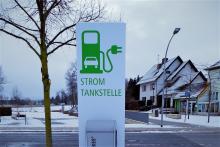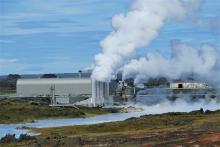ECOWAS Renewable Energy Policy
This policy on renewable energy aims at ensuring increased use of renewable energy sources such as solar, wind, small-scale hydro and bioenergy for grid electricity supply and for the provision of access to energy services in rural areas. The ECOWAS region has set a clear target to increase the share of renewable energy in the region’s overall electricity mix to 10% in 2020 and 19% in 2030. Including large hydro, the share would reach 35% in 2020 and 48% in 2030. Around 25% of the rural ECOWAS population will be served by mini-grids and stand-alone systems by 2030.
Climate-resilient PPP: where are we?
How can developing countries get to net zero in a financeable and affordable way?
Cleaning up Thilafushi: Making the Maldives Carbon Neutral
Waste PPPs are gaining traction in developing countries, and the recent implementation of a waste PPP in the Maldives illustrates how far a country can come in its relationship with rubbish. Since the 2008 election, the country has been in the midst of a rapid social, political, and economic transformation. Officials and administrators aim to combat the developmental challenges of climate change, poverty reduction, private sector development, and economic restructuring, so urban infrastructure tops the priority list.
Climate Toolkits for Infrastructure PPPs
Nature-based Solutions: Scaling Private Sector Uptake for Climate Resilient Infrastructure in Latin America and the Caribbean
Nature-based Solutions (NbS) can be used as a cost effective way to build infrastructure resilience in response to a changing climate, while also delivering a range of other societal benefits. Yet, many business aren’t aware of these benefits, and implementation of NbS by the private sector (including businesses that plan, design, construct and fund infrastructure) has been limited in Latin American and the Caribbean (LAC).




